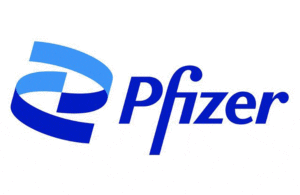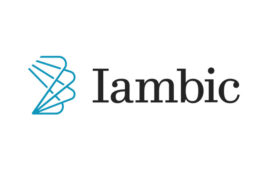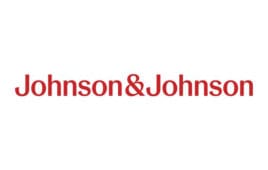
[Image Sergey Nivens/Adobe Stock]
In the Aesopian fable, the tortoise’s steady focus and persistence overcomes the hare’s bursts of speed. 2023 saw a similar shift in the pharma sector. While Pfizer, thanks to blockbuster COVID vaccine sales, rocketed to unprecedented heights in 2022 surpassing $100 billion in revenue, its fortunes reversed in 2023. As COVID product demand plummeted, Pfizer’s revenue nosedived to $58.5 billion, even resulting in a quarterly loss in Q3. Conversely, Merck’s consistent, diversified approach propelled it past Pfizer to become the Big Pharma leader in 2023, with a revenue climb to $60.115 billion, making it the top Big Pharma of 2023 — by a hair. While Merck’s revenue was $60.1 billion, Pfizer’s was only $1.6 billion behind.
This article will analyze the current top five Big Pharma firms, analyzing their successes and setbacks from 2020 to present. Note: The x-axis in the chart below starts at $40 billion.
Merck & Co.: Strategic R&D investment fuels top-line growth
 Merck’s full-year 2023 results signal a resilient performance despite sluggish sales of Lagevrio (molnupiravir) an oral antiviral for COVID-19. The company’s sustained, double-digit growth across the oncology and vaccines segments, was a result of strong sales of its Keytruda and Gardasil powerhouses. While Keytruda sales remain strong thanks to continued demand across its 17 cancer indications, a looming patent expiry in 2028 for the drug could open the floodgates for biosimilar competition.
Merck’s full-year 2023 results signal a resilient performance despite sluggish sales of Lagevrio (molnupiravir) an oral antiviral for COVID-19. The company’s sustained, double-digit growth across the oncology and vaccines segments, was a result of strong sales of its Keytruda and Gardasil powerhouses. While Keytruda sales remain strong thanks to continued demand across its 17 cancer indications, a looming patent expiry in 2028 for the drug could open the floodgates for biosimilar competition.
Another headwind is the increasing generic competition and U.S. pricing pressures affecting sales of the anti-diabetic drug Januvia. Despite this, Merck & Co. projects 2024 sales between $62.7 and $64.2 billion. The company’s strategic R&D investments have paved the way for a robust pipeline of promising candidates. This includes progress with FDA Priority Review designations for the investigational pneumococcal conjugate vaccine, V116, and patritumab deruxtecan with collaborator Daiichi Sankyo, along with a string of oncology approvals and a surge of phase 3 launches.
Pfizer: Rebuilding in a post-pandemic market
 Pfizer faced a dramatic shift in revenue in 2023 as demand for its COVID-19 products, Comirnaty and Paxlovid, sharply dipped. This drop prompted the company to repeatedly revise its revenue forecasts downward, leading to a third-quarter loss. While its 2023 revenue levels were highest yet for any Big Pharma firm, its sales fell 41.69% in 2022 to $58.5 billion. For 2024, Pfizer anticipates revenues in the same ballpark, with Comirnaty and Paxlovid contributing significantly less. On a percentage basis, Pfizer’s stock dipped a similar amount, falling 43.46% over 2023. On a bright note, the company’s Seagen acquisition has strengthened its oncology portfolio, helping to potentially offset falling COVID-19 product sales. Also in 2023, Pfizer scored a record number of nine new molecular entity approvals from FDA.
Pfizer faced a dramatic shift in revenue in 2023 as demand for its COVID-19 products, Comirnaty and Paxlovid, sharply dipped. This drop prompted the company to repeatedly revise its revenue forecasts downward, leading to a third-quarter loss. While its 2023 revenue levels were highest yet for any Big Pharma firm, its sales fell 41.69% in 2022 to $58.5 billion. For 2024, Pfizer anticipates revenues in the same ballpark, with Comirnaty and Paxlovid contributing significantly less. On a percentage basis, Pfizer’s stock dipped a similar amount, falling 43.46% over 2023. On a bright note, the company’s Seagen acquisition has strengthened its oncology portfolio, helping to potentially offset falling COVID-19 product sales. Also in 2023, Pfizer scored a record number of nine new molecular entity approvals from FDA.
Johnson & Johnson: Consistent innovation amidst revenue upswing
Johnson & Johnson’s pharma division has witnessed consistent growth in recent years, with revenue rising from $45.6 billion in 2020 to $54.8 billion in 2023. J&J also bolstered its oncology pipeline with the approval of Talvey for multiple myeloma, Akeega for BRCA-positive prostate cancer, and teclistamab for a wider range of cancers. Additionally, J&J is expanding indications for Rybrevant and exploring new areas like autoimmune diseases with its nipocalimab program. The company is also tackling chronic conditions like Crohn’s disease with Tremfya (guselkumab).
AbbVie navigates Humira biosimilar competition, maintains growth in other areas
 AbbVie’s 2023 was marked by revenue declines largely resulting from competition from Humira biosimilars. Full-year net revenues totaled $54.318 billion, down 6.4% on a reported basis over the prior year. The immunology portfolio was particularly affected, with global net revenues down 9.6% as Humira net revenues specifically fell to $14.4 billion. Despite these headwinds, AbbVie saw growth in other areas. The neuroscience portfolio posted strong results, with an 18.2% increase in global net revenues, hitting $7.7 billion. AbbVie’s pipeline is also strong The company announced definitive agreements to acquire ImmunoGen and Cerevel Therapeutics, bolstering its oncology and neuroscience portfolios. The company is particularly optimistic about the potential of Skyrizi and Rinvoq, raising their combined sales outlook to more than $27 billion by 2027. Looking ahead, AbbVie projects a high single-digit compound annual revenue growth rate through 2029.
AbbVie’s 2023 was marked by revenue declines largely resulting from competition from Humira biosimilars. Full-year net revenues totaled $54.318 billion, down 6.4% on a reported basis over the prior year. The immunology portfolio was particularly affected, with global net revenues down 9.6% as Humira net revenues specifically fell to $14.4 billion. Despite these headwinds, AbbVie saw growth in other areas. The neuroscience portfolio posted strong results, with an 18.2% increase in global net revenues, hitting $7.7 billion. AbbVie’s pipeline is also strong The company announced definitive agreements to acquire ImmunoGen and Cerevel Therapeutics, bolstering its oncology and neuroscience portfolios. The company is particularly optimistic about the potential of Skyrizi and Rinvoq, raising their combined sales outlook to more than $27 billion by 2027. Looking ahead, AbbVie projects a high single-digit compound annual revenue growth rate through 2029.
Roche Pharmaceuticals (division): Sustaining growth with strategic R&D
 In some ways, the pandemic was challenging for Roche Pharmaceuticals, but the company’s revenue is on the upswing. In 2023, Roche reported $49.6 billion in revenue. While reflecting a return to growth after a slight dip to $47.7 billion in 2022, the revenue figures were roughly in line with its $49.2 billion revenue levels in 2021. In 2023, Roche secured positive phase 3 results for Alecensa (alectinib) in early-stage non-small cell lung cancer (NSCLC) and gained U.K. Medicines and Healthcare products Regulatory Agency (MHRA) approval for Tecentriq SC (atezolizumab). Additionally, Ocrevus (ocrelizumab) for multiple sclerosis and Evrysdi (risdiplam) for spinal muscular atrophy continued their strong market performance.
In some ways, the pandemic was challenging for Roche Pharmaceuticals, but the company’s revenue is on the upswing. In 2023, Roche reported $49.6 billion in revenue. While reflecting a return to growth after a slight dip to $47.7 billion in 2022, the revenue figures were roughly in line with its $49.2 billion revenue levels in 2021. In 2023, Roche secured positive phase 3 results for Alecensa (alectinib) in early-stage non-small cell lung cancer (NSCLC) and gained U.K. Medicines and Healthcare products Regulatory Agency (MHRA) approval for Tecentriq SC (atezolizumab). Additionally, Ocrevus (ocrelizumab) for multiple sclerosis and Evrysdi (risdiplam) for spinal muscular atrophy continued their strong market performance.
Filed Under: Uncategorized



